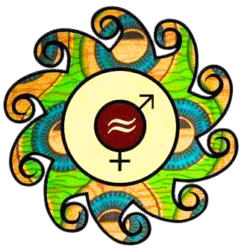Subtotal KSh 0.00
HFAW’s Community-Led Model to End FGM and GBV
The Hope Foundation for African Women (HFAW) is a grassroots-driven organization dedicated to ending Female Genital Mutilation (FGM) and Gender-Based Violence (GBV) through a holistic, participatory, and multi-sectoral approach. Operating in high-prevalence regions of Nyamira, Kisii, and Kajiado counties, HFAW empowers communities from within, leveraging local leadership, schools, churches, and community voices to challenge harmful social norms and uphold the rights and dignity of women and girls.
HFAW’s integrated methodology combines school-based education, men’s engagement, faith-based advocacy, economic empowerment, and popular education to foster sustainable, community-owned change.
Nyamira County: Youth Advocacy, Men’s Engagement & Media
HFAW prioritizes school-based advocacy and youth empowerment. In 2023, 15 schools were reached, impacting over 4,700 students and hundreds of teachers and parents. Students are now rejecting FGM and protecting peers.
Engaging Men as Allies
HFAW’s “Men End FGM” initiative trained over 100 men—many with daughters or wives affected. One father, Manae, shared his regret:
More men are emerging as advocates for change in both Nyamira and Kajiado counties.
Strategic Media for Awareness
HFAW leverages radio (95% reach) and TV to deliver anti-FGM/GBV content. Campaigns reached 700M+ via radio, 200K via TV, and 75K+ via social media. These amplify grassroots efforts and promote dignity for women and girls.
Menstrual Health and Girls’ Education
In 2024, the “Pads & Pants” initiative delivered menstrual hygiene kits to 500 girls and boxer shorts to 100 boys. These efforts reduce absenteeism, teenage pregnancy, and FGM by empowering girls to stay in school with dignity.
Faith-Based Engagement & Economic Empowerment
In Kisii, faith leaders trained by HFAW now challenge harmful practices in churches. In Nyamira and Kisii, table-banking has helped women—especially FGM survivors and those with disabilities—gain financial independence.
Key Achievements & Trends
- Men as Allies: Fathers are now rejecting FGM and inspiring peers to do the same.
- Women’s Economic Empowerment: Table-banking and microloans are transforming women into self-sufficient leaders.
- Menstrual Health for Education: Girls remain in school, reducing FGM risks.
- Community-Led Change: Faith, school, and community partnerships make progress sustainable.
Help us scale these life-changing initiatives across rural Kenya—building safer, more empowered communities together.
